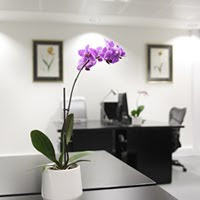According to research carried out by
Sage more than 30% of small business owners in the UK did not take a summer
holiday last year. The smaller the
business the more likely this is to occur.
Ironic really, as most small business owners work far longer hours than
the average, certainly not the nine to five grind.
Whilst many SME business owners believe
that they can't leave their business for a break as it may be damaging, it is
actually more dangerous and less productive. Cary Cooper, professor of organisational
psychology and health at Lancaster University Management School
says that people who are constantly thinking and working on their business are
causing more harm than good. "Keep
that up over a long period and it can be destructive. There's profound evidence
that if you work extremely long hours over a sustained period you'll end up
being less productive."
It is also proven that taking a break helps with productiveness,
wellness, health and family relationships. Many SME owners aren't able to spend as much
time connecting with family as they would like, so taking a break allows them
do just so. It is a fact that most
people return from holiday rejuvenated and refreshed, with a clear mind you can
refocus and actually see things more clearly.
It is recommended to have a complete
"digital detox" but this isn't highly likely. With smart-phones creating instant access to
everything back at home, it's hard to completely switch off. You can't relax on holiday if your phone is
constantly ringing, yet if your not answering calls then you could be losing
potential sales.
This is where we come in; to help you
get that much needed break. Taking a
temporary telephone service at The Virtual Office from as little as £6 per day
allows your business to still run effectively, whilst you're enjoying yourself
away from the stress of everyday life at home. We can help you out of your 'catch 22'. As the first Virtual Office, with over twenty
years in the business, our reliable and experienced staff take pride in the
telephone service which we provide.
Simply divert your telephone line
through to our receptionists to answer and handle your calls. With our unified voicemail messaging you can receive
email alerts and return to callers as you need. If you're expecting important calls you can
just inform us and we can transfer them through to you.
No need to make the choice between
family time and work. You are free to
enjoy your much needed break.
Author: Jess Hill
Virtual Office Team member
30 June 2014

